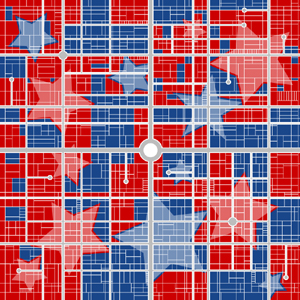3 conservative SCOTUS justices appear to seek middle ground on 'independent state legislature' theory

Image from Shutterstock.
Three conservative U.S. Supreme Court justices appeared ready Wednesday to accept the “independent state legislature” theory that would strip state courts of power to review congressional voting maps adopted by state lawmakers. Three liberal justices, on the other hand, resisted the idea.
That left three conservative justices who appeared to be seeking a middle ground, report the Washington Post, the New York Times, Politico and Law360.
Those middle-ground justices are Chief Justice John Roberts, Justice Brett Kavanaugh and Justice Amy Coney Barrett.
The theory’s proponents argue that the Constitution’s elections clause in Article I bars state courts from interfering with electoral maps adopted by state legislatures. The clause provides that “the times, places and manner of holding elections for senators and representatives shall be prescribed in each state by the legislature thereof.”
In the North Carolina case before the Supreme Court, Moore v. Harper, the North Carolina Supreme Court rejected the theory when it held that a map drawn by state lawmakers to favor Republicans violated the state constitution.
According to the New York Times, Roberts, Kavanaugh and Barrett “seemed to be searching for a compromise under which state supreme courts would generally have the last word on disputes over state laws governing federal elections but be subject to oversight from federal courts in rare cases.”
Barrett could hold the deciding vote in the case, according to the Washington Post and the New York Times.
See also:
ABAJournal.com: “Chemerinsky: An important week of arguments in the Supreme Court”
ABAJournal.com: “SCOTUS will decide case that could strip state courts of power to review congressional voting maps”



